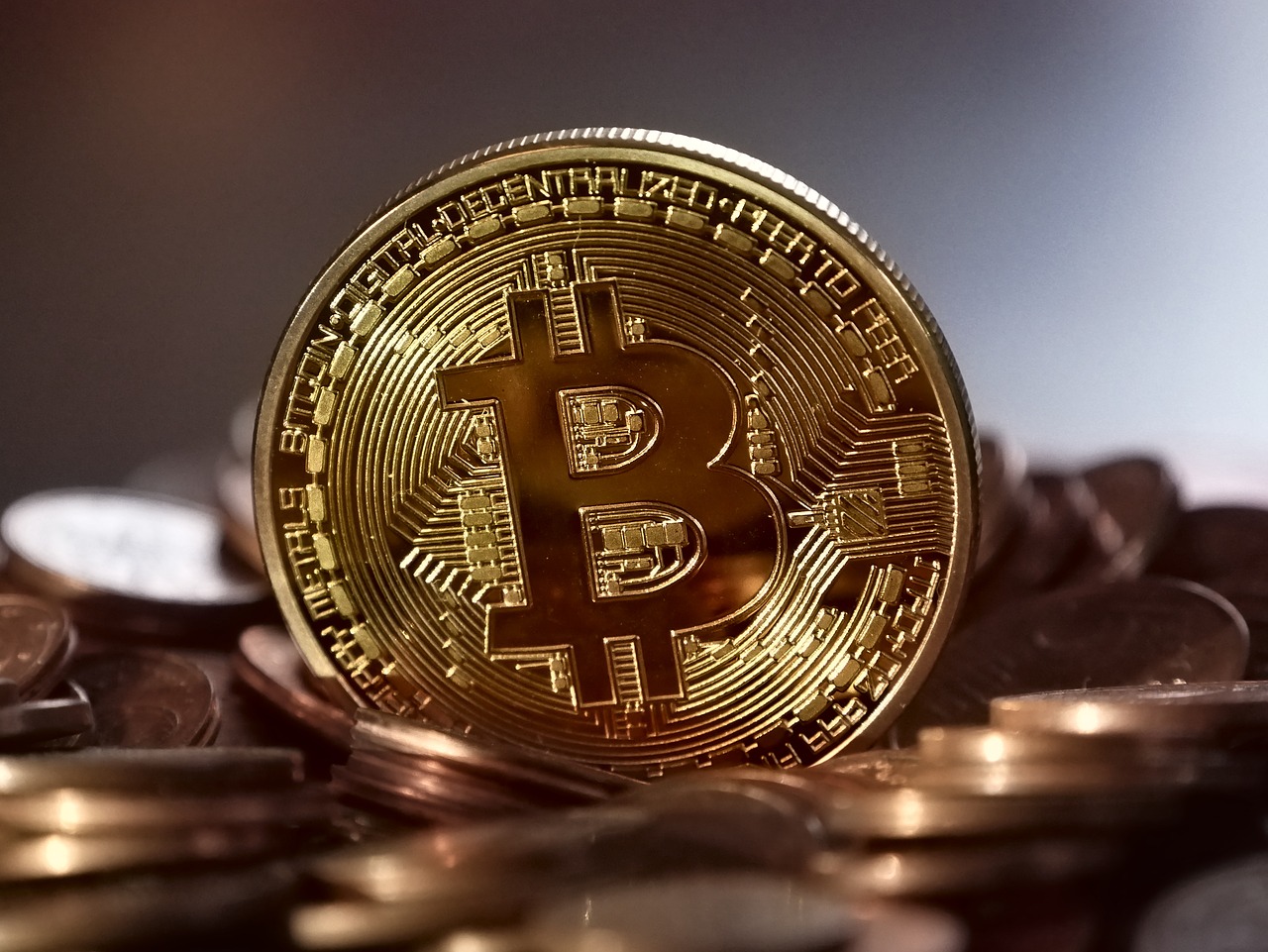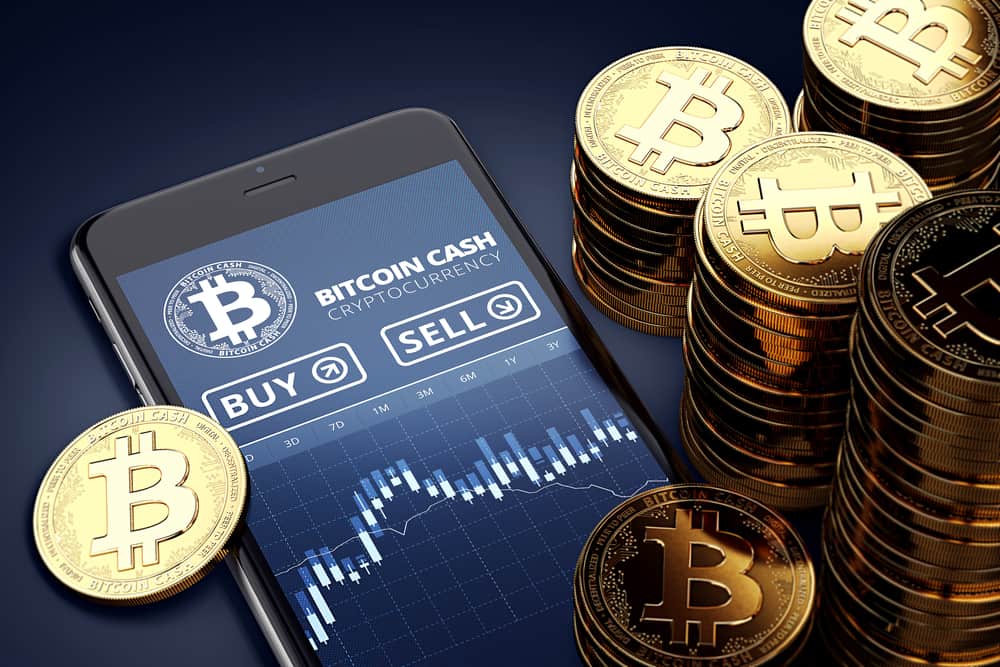Crypto Guide: Bitcoin (BTC) vs. Bitcoin Cash (BCH)
Last Update: November 27th, 2024

When the Blockchain was first introduced through the Bitcoin whitepaper in 2009 by Satoshi Nakamoto, there was no debate such as Bitcoin vs. Bitcoin Cash and whether or not one of them is better than the other cryptocurrency. This is due to the fact that Bitcoin Cash arose out of the bitcoin cash hard fork from Bitcoin, which took place in 2017. A hard fork is driven by the mining community, including bitcoin miners, and happens only if the miners can’t reconcile about an upcoming update addressing the future of the mined coin. This means, in essence, one coin follows the new, upgraded blockchain, and the other coin continues along the old route.
So you might wonder, which upgrade caused the dissent about Bitcoin’s prospective path and what is Bitcoin Cash?
The answer lies in the Blockchain Trilemma, a term fathered by Ethereum’s founder Vitalik Butterin, which describes the challenge in developing a blockchain technology that offers scalability, decentralization and security, without compromising anyone factor for the sake of the other.
E.g. Vitalik himself believes that at a fundamental level, blockchains can only achieve 2 out of 3 of these attributes at one time.
Brief Overview of Bitcoin and its Blockchain
Bitcoin, introduced in 2009 by the pseudonymous Satoshi Nakamoto, marked the advent of decentralized digital currencies. Its underlying technology, the blockchain, is a distributed ledger system that ensures transparency and immutability by recording transactions in blocks linked through cryptographic hashes. Bitcoin’s design prioritized decentralization and security, enabling peer-to-peer transactions without intermediaries like banks.
However, as Bitcoin grew in popularity, its limitations became apparent, particularly regarding scalability. The Bitcoin network processes approximately 7 transactions per second, a stark contrast to systems like Visa, which handle thousands of transactions in the same timeframe. This limitation is due to Bitcoin’s 1MB block size, which restricts the number of transactions that can be processed in each block.
These constraints have resulted in slower transaction speeds and higher fees during periods of high network activity, reducing Bitcoin’s practicality as a medium of exchange for everyday use. While Bitcoin remains a widely recognized and adopted store of value—often referred to as “digital gold”—its scalability issues prompted debates within the community.
In 2017, disagreements over how to address these challenges led to the creation of Bitcoin Cash (BCH) through a hard fork. Bitcoin Cash aimed to resolve Bitcoin’s limitations by increasing block sizes, enabling faster and cheaper transactions. This divergence represents differing visions for the future of blockchain technology, with Bitcoin emphasizing security and decentralization, and Bitcoin Cash prioritizing scalability for broader transactional use.
Bitcoin vs. Bitcoin Cash

Bitcoin (BTC) is renowned for its decentralized and secure network but has faced significant challenges in scalability. The Bitcoin blockchain processes roughly one transaction every seven seconds, far below centralized systems like Visa, which can handle 1,700 transactions per second. This limitation has hindered Bitcoin’s potential for mass adoption as a widely used payment system.
To address these challenges, the majority of Bitcoin miners adopted Segregated Witness (SegWit) in 2017. This update aimed to reduce transaction size by separating signature data (“witness data”) from the main transaction block. The original portion of the transaction, including sender and receiver information, remains in the block, while the signature data is stored as a smaller structure. This approach effectively increases block capacity, allowing faster and cheaper transactions without changing the block size itself.
SegWit also resolved Transaction Malleability, enabling the development of the Lightning Network—a second-layer payment protocol. The Lightning Network allows near-instant, low-cost transactions by creating peer-to-peer payment channels off-chain. It also facilitates atomic swaps, enabling direct cryptocurrency exchanges without intermediaries.
Key Scaling Solutions:
- Reduce Data per Block: Achieved through updates like SegWit to improve efficiency.
- Increase Block Size: A controversial alternative, as seen in Bitcoin Cash’s approach.
Ongoing debates about Bitcoin’s scalability reflect two competing visions: one prioritizing decentralization and security (Bitcoin) and another focusing on faster, lower-cost transactions (Bitcoin Cash). These differing strategies highlight the evolving landscape of blockchain technology.
The Bitcoin Scaling Debate
The Bitcoin scaling debate centered on how to handle increasing transaction demand on the network. Proponents of larger block sizes argued it would allow more transactions per block, reducing congestion and fees. Conversely, advocates of Segregated Witness (SegWit) aimed to optimize existing blocks by separating signature data, enhancing efficiency without increasing block size.
This debate reflected differing priorities: scalability versus maintaining decentralization and accessibility for all network participants.

The Block Size Issue and its Impact on Bitcoin Transactions
Bitcoin’s 1 MB block size limited the number of transactions processed per block, leading to slow transaction times and high fees during peak demand. Supporters of larger block sizes believed increasing capacity could solve these issues.
Critics, however, warned this might lead to network centralization, as only powerful entities could sustain larger blocks. The block size debate underscored the challenges of balancing scalability with decentralization in a growing blockchain network.
The Divergence of Solutions and the Hard Fork that Created Bitcoin Cash
The scaling debate culminated in a 2017 hard fork, splitting Bitcoin into Bitcoin (BTC) and Bitcoin Cash (BCH). Bitcoin Cash adopted an 8 MB block size to improve transaction speed and reduce fees. Bitcoin retained its 1 MB size, optimizing capacity through SegWit.
This divergence highlighted contrasting visions: BCH emphasized usability as digital cash, while BTC focused on maintaining decentralization and security as a store of value.
Bitcoin Cash Overview
Bitcoin Cash (BCH) emerged in 2017 as a fork of Bitcoin, with the primary goal of becoming a peer-to-peer electronic cash system. Unlike Bitcoin, which has a block size limit of 1 MB, the Bitcoin Cash network initially increased this limit to 8 MB and later to 32 MB. This significant increase allows the Bitcoin Cash blockchain to process more transactions per block, addressing the scalability issues that Bitcoin faces.
The larger block size of Bitcoin Cash means that it can handle more transactions simultaneously, leading to lower transaction fees and faster processing times. This makes Bitcoin Cash a more practical option for everyday transactions, aligning with its goal of being a usable currency for daily activities. By focusing on transaction efficiency, Bitcoin Cash aims to provide a viable alternative to traditional payment systems, offering users a faster and more cost-effective way to transfer value.
What is Bitcoin Cash?

Bitcoin Cash took the opposite route, upgrading the block size from 8MB to 32MB on May 15, 2018. Its miners were of the opinion that the scaling solution prevents Bitcoin from being a “peer to peer cash system” which contradicts the original terms stated in the whitepaper, which was released by Satoshi Nakamoto in 2009. In addition, the miners found that the process behind SegWit lacked transparency which could possibly undermine the decentralization and democratization of Bitcoin.
Bitcoin miners on the Bitcoin Cash network benefit from the larger block size, which allows for more transactions per block and potentially higher transaction fees.
This caused a hard fork in August 2017, which created a new currency: Bitcoin Cash. Bitcoin Cash’s block size increase was designed to expedite the verification method, with an alterable level of difficulty to ensure the chain’s survival and transaction confirmation speed, regardless of the number of miners supporting it. This, of course, has caused a stir about whether the security of the Bitcoin Cash network remains assured.
Bitcoin Cash could ultimately process bitcoin cash transactions in less than three minutes. However, the security of the Bitcoin Cash blockchain remains questionable.
Cheaper transactions are one of the key advantages of Bitcoin Cash over Bitcoin, making it more suitable for everyday use.
The main proponent of Bitcoin Cash is Roger Ver, a very prominent and controversial figure in the blockchain world. He owns the domain bitcoin.com and refers to Bitcoin Cash as the real Bitcoin since he is of the opinion that the scaling solution contradicts the original ideas of Satoshi Nakamoto, as published in the whitepaper.
The Benefits and Drawbacks of Using Bitcoin Cash
Bitcoin Cash offers several notable benefits, particularly in terms of transaction speed and cost. The increased block size limit allows the Bitcoin Cash network to process more transactions per block, resulting in faster transaction speeds and lower transaction fees compared to Bitcoin. This makes Bitcoin Cash an attractive option for users looking for a practical and efficient cryptocurrency for everyday use.
However, Bitcoin Cash also has its drawbacks. One of the main concerns is its smaller market capitalization compared to Bitcoin, which can affect its overall stability and adoption. Additionally, the security of the Bitcoin Cash network is often questioned, as it is not as decentralized as the Bitcoin network. This reduced decentralization may be a concern for users who prioritize the security and democratic nature of their cryptocurrency.
Key Differences Between Bitcoin and Bitcoin Cash
The primary difference between Bitcoin and Bitcoin Cash lies in their approach to scalability. Bitcoin Cash has a larger block size limit, allowing it to process more transactions per block and resulting in lower transaction fees. This makes Bitcoin Cash a more practical and efficient option for everyday transactions. In contrast, Bitcoin has maintained its original block size limit, focusing on security and decentralization.
Another key difference is the consensus algorithm used by each cryptocurrency. Bitcoin Cash’s approach to scalability and transaction processing may affect its security and decentralization compared to Bitcoin. While Bitcoin is often seen as a long-term store of value, similar to digital gold, Bitcoin Cash aims to be a peer-to-peer cash system, offering faster and cheaper transactions for daily use.
In summary, the choice between Bitcoin and Bitcoin Cash depends on the user’s priorities. Bitcoin offers stronger security and decentralization, making it a reliable store of value. On the other hand, Bitcoin Cash provides faster transaction speeds and lower fees, making it a more practical option for everyday transactions.
How do I convert Bitcoin Cash to Bitcoin?
The simplest way is to open up an account at Coinbase.com, a cryptocurrency exchange. After registering, you can directly sell your Bitcoin for Bitcoin Cash.

Should I buy Bitcoin or Bitcoin Cash?
It depends on what you believe in. It’s a matter of fact that the Blockchain Trilemma is yet to be solved and scaling proponents are either very optimistic or ignorant about the fact that scaling solutions for Bitcoin do not harmonize necessarily with the original bitcoin blockchain and the original idea of a peer to peer cash system. It also depends on which reasons you buy Bitcoin for, whether to make monetary profits, to hedge against other asset classes, as a digital substitute to gold or to support an idealistic idea of sound money.
Currently, BCH is among the most popular cryptocurrencies by market capitalization, processing more transactions due to its larger block size.
Can I buy Bitcoin Cash in India?
Yes, by going to Coinmama.com.
What’s the simplest way to buy Bitcoin Cash?
At the time of writing, Coinbase remains the simplest way to buy Bitcoin Cash. But a very simple alternative is to visit Bitcoin.com. If you want to buy Bitcoin Cash, it makes sense to support its main proponent Roger Ver, by visiting his domain Bitcoin.com.
It’s noteworthy to mention that Roger Ver did a public bet in 2013 that Bitcoin is going to cross $1,000,000.
Conclusion
The creation of Bitcoin Cash in 2017 marked a significant turning point in the evolution of blockchain technology. Born out of disagreements within the Bitcoin community over scalability, the hard fork highlights the diverse visions for the future of cryptocurrency.
Bitcoin continues to focus on security, decentralization, and long-term value as “digital gold,” while Bitcoin Cash emphasizes scalability and efficiency for everyday transactions. Each cryptocurrency offers unique benefits, reflecting distinct priorities and use cases, ultimately giving users the choice based on their needs and perspectives.

FAQs: Bitcoin (BTC) vs. Bitcoin Cash (BCH)
1. What is Bitcoin Cash, and how did it originate?
Bitcoin Cash (BCH) was created in 2017 as a result of a hard fork from Bitcoin (BTC). The fork occurred due to disagreements among miners about how to address Bitcoin’s scalability issues. Bitcoin Cash opted for larger block sizes to improve transaction speed and reduce costs, while Bitcoin continued with its original structure, incorporating Segregated Witness (SegWit) technology.
2. What is the Blockchain Trilemma, and how does it relate to Bitcoin and Bitcoin Cash?
The Blockchain Trilemma, introduced by Ethereum’s Vitalik Buterin, highlights the difficulty in achieving scalability, decentralization, and security simultaneously.
- Bitcoin: Prioritizes decentralization and security but struggles with scalability.
- Bitcoin Cash: Focuses on scalability by increasing block sizes but raises concerns about decentralization and network security.
3. How do Bitcoin and Bitcoin Cash differ in transaction speed and cost?
- Bitcoin (BTC):
- Processes approximately one transaction every 7 seconds.
- Higher transaction fees due to limited block sizes.
- Bitcoin Cash (BCH):
- Processes transactions faster, often within 3 minutes.
- Lower transaction fees, making it more suitable for everyday payments.
4. Why is Bitcoin Cash considered more cost-efficient?
Bitcoin Cash’s larger block sizes (32MB compared to Bitcoin’s 1MB) allow it to process more transactions simultaneously. This reduces congestion and lowers transaction fees, making it a more affordable option for routine transactions.
5. What are the main advantages of Bitcoin and Bitcoin Cash?
- Bitcoin (BTC):
- Widely recognized and supported as the original cryptocurrency.
- Stronger focus on security and decentralization.
- Long-term store of value often referred to as “digital gold.”
- Bitcoin Cash (BCH):
- Faster transaction speeds and lower fees.
- Designed for everyday use as a peer-to-peer cash system.
6. Can I convert Bitcoin Cash to Bitcoin?
Yes, you can easily convert Bitcoin Cash to Bitcoin through cryptocurrency exchanges like Coinbase or other platforms. Simply register, deposit your BCH, and exchange it for BTC.
7. Should I invest in Bitcoin or Bitcoin Cash?
This depends on your priorities:
- Choose Bitcoin (BTC) if you seek a long-term store of value or hedge against inflation.
- Choose Bitcoin Cash (BCH) if you prioritize faster, low-cost transactions for everyday use.
Your choice should align with your investment goals, whether profit, ideology, or a digital alternative to traditional money.
8. How can I buy Bitcoin Cash?
Bitcoin Cash can be purchased through:
- Coinbase – One of the simplest platforms for beginners.
- Bitcoin.com – Supported by Roger Ver, a prominent Bitcoin Cash advocate.
- Platforms like Coinmama, which are accessible globally, including in India.
9. Why is Roger Ver significant to Bitcoin Cash?
Roger Ver, a well-known figure in the blockchain community, advocates for Bitcoin Cash as the “real Bitcoin.” He believes it adheres more closely to Satoshi Nakamoto’s vision of a peer-to-peer cash system. Ver’s influence extends to owning Bitcoin.com and actively promoting BCH as a viable alternative to BTC.
